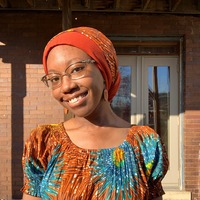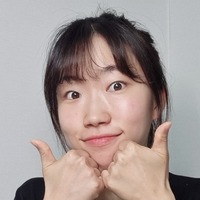Hello everyone. Just a little language study related writing.
By the end of this week, I will have taken eight Korean classes. I will be taking five next week, and then the number of classes will go down to four from then on (two individual and 2 group classes per week). The individual classes last for an hour each, and the group classes go for two hours each.
I recently started taking classes on Amazing Talker. I absolutely love it. During this past two-week break, I took many trial classes and found a total of four teachers that I want to take lessons with either now or later. I opted to immediately start individual classes with two teachers, one for speaking and one for reading and writing.
Before my speaking class, my teacher sends me a couple videos to watch in Korean about a topic that I selected. I watch and take notes on the video. The first class was on ‘일제시대’, or the Japanese imperial (colonial) period in Korea, which spanned from 1910–1945. The next class will be on the Korean War. I picked these topics because I don’t have much experience learning or speaking in Korean about Korean history, which is as much a part of the culture as the language is. In class, we discuss our opinions, listen to accounts of what happened (typically foreigners visiting monuments and museums who are speaking near-native Korean(shows like 친절한 기사단, 어서와정주행, 어서와, 한국은 처음이지?) and go over the vocabulary that I find difficult.
The second individual class I am taking is for reading. My teacher or I select a text to read (typically news articles or essays). I pre-study the vocabulary and come to class ready to read through the article. My teacher asks me to explain the meaning of difficult words using Korean and helps me when I’ve forgotten a word. She also corrects my writing when I send it to her. I revise and study the corrections.
This week also marked the beginning of Winter semester Korean classes with The Korea Society!! I took my first class in the fall, and knew I wanted to continue learning with them.
I am retaking the Advanced 1 course because the textbook changed. We used the textbook and workbook for 재미있는 한국어 3 last semester, which is a high- intermediate leveled book (in my opinion). It was great for a review, and I think that it matches my level very nicely.
This semester we are using the Advanced 1 book of Integrated Korean, which is actually a book from the same curriculum I used back when I began teaching myself Korean (I used Beginning 1!). There’s a lot of vocabulary and plenty of reading and comprehension questions. It’s a much more difficult book, but I really desire a challenge.
The last class I am taking is Hanja!! The Korea Society introduced this class just this semester and it filled up quite quickly, as to be expected. ‘ Hanja’ (한자) are the Chinese characters that are incorporated into the Korean language, which make up as much as 70% of the language. Historically, Hanja characters were used in Hanmun, which are the written texts. This changed with the introduction of 한글 (Hangeul), created by 세종대왕 (King Sejong) in 1443. Because of the extensive nature of Chinese characters, education, reading and writing were essentially exclusively for those of a high social class. King Sejong desired for the masses to be able to read and write- so he created the beautiful and elementally created 한글 (Hangeul) that Koreans and Korean learners know and love.
Some examples of Hanja:
물가 (物價) thing+ value= price, cost of living
입장 (入場) enter+ field= admission
약혼자 (約婚者) covenant+ marriage+ ‘person who’= person who is engaged to be married
Our Hanja class teacher is one of the authors of the book that we are using, and her understanding of Chinese characters is so appreciated!! Words that have Hanja are plentiful and have variegated meanings, so similar sounding syllables (like “ga, ja, ba”) do not always indicate the same meaning.
Example of 가:
가입 (加入) add+ enter= to join
가족 (家族) house/family+ family clan/ethnic group= family
가능 (可能) can+ ability= possibility
Fascinating right? The first character (가) pronounced “ga” sounds the same when it appears in the Korean words above (and in all Korean words). However, the meaning is changed depending upon the Chinese character (Hanzi in Chinese, Hanja in Korean, Kanji in Japanese) that it uses.
Needless to say, it makes a world of difference to have a class that specifically specializes in skills that can completely transform my knowledge of Korean.
I was also permitted to try the highest class offered (Advanced Reading and Discussion) and will take a total of two classes before taking the full class in the Spring semester. The class compiles near-native level readings and encourages students to participate in opinion-based discussions and written summarizations of the read material.
I’ve attempted to create a semester of academically rigorous (non-credit granting) classes that I can take online these next 2 ½ months. I plan on continuing to do this as much as possible, because I realize that I genuinely love studying Korean and am willing to devote a great deal of time to becoming completely proficient. I’m not currently studying any other languages, though I plan to retain my reading ability of written Modern Hebrew and Arabic.
I’m hoping to continue doing relatively regular study reflections and eventually switch to writing them in Korean. Hoping this helps to encourage both myself and other language learners! Happy Studying.
Korean Study Reflection Journal
Profesores

💛Wonny·워니·蕙園 🏆한국어 강사 👩🏫한국어 학원 선생님 🇰🇷한국어,🇺🇸영어💛
💡입문 | 회화 | 말하기 | 취미 한국어 | 한국생활
Habla
inglésC2 Avanzado
coreanoNativo

💡입문 | 회화 | 말하기 | 취미 한국어 | 한국생활
Habla
inglésC2 Avanzado
coreanoNativo
📸 한국어가 어려우세요? 저와 함께라면 즐겁고 재미있는 한국어를 배울 수 있어요
👨🏼💼 한국어 강사로 다양한 친구들을 가르쳤어요😘
🏆 당신의 관심사에 맞춰 함께 수업을 진행해요!
📈입문&회화&말하기 올바른 맞춤형 수업을 제공해요🏅
🚩 많은 학생들이 저와 함께 배운 후에 한국어에 자신감이 생겼어요!
🙆저와 함께 한국어를 배운다면💁
1️⃣ 재미있는 한국어를 배워요
2️⃣ 한국어로 자신있게 말해요
3️⃣ 함께 수업을 진행해요
📚다양한 경험과 전문성이 있는 혜원쌤과 함께 쉬운 한국어를 배워볼까요?🛫
Ver más





